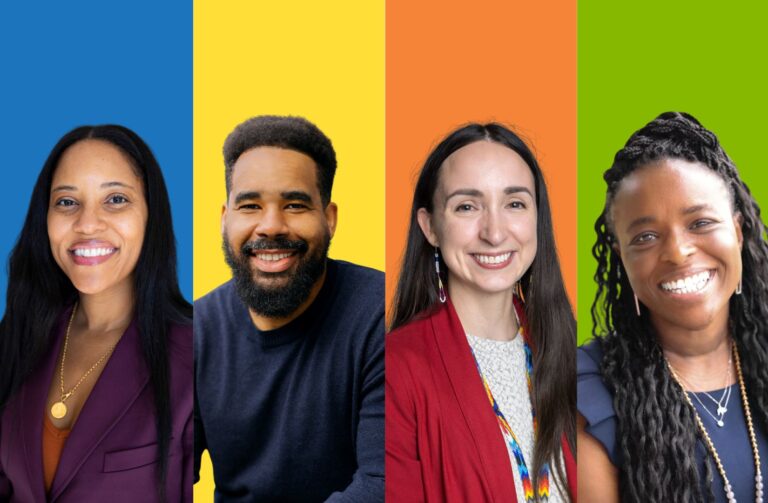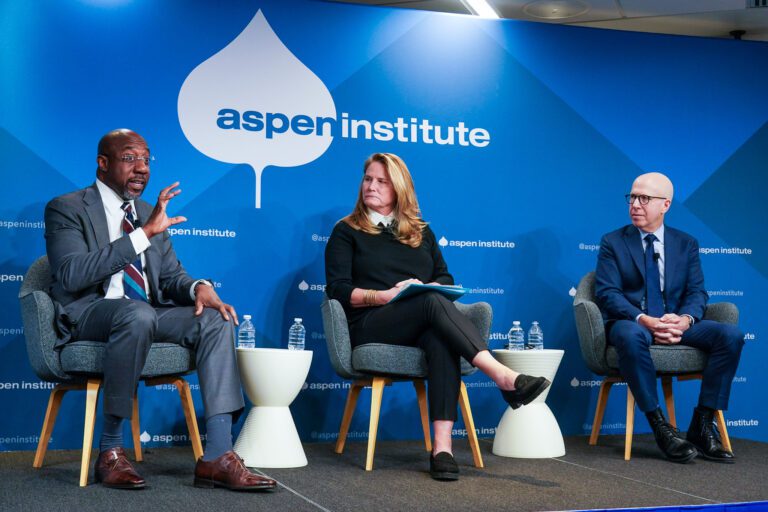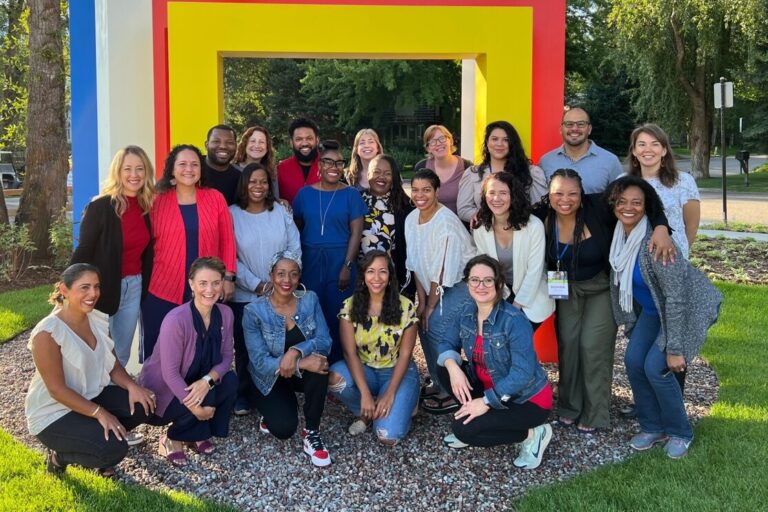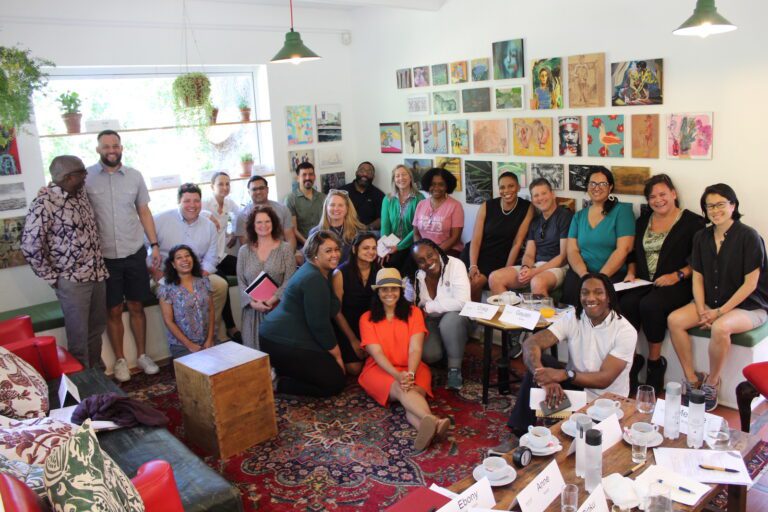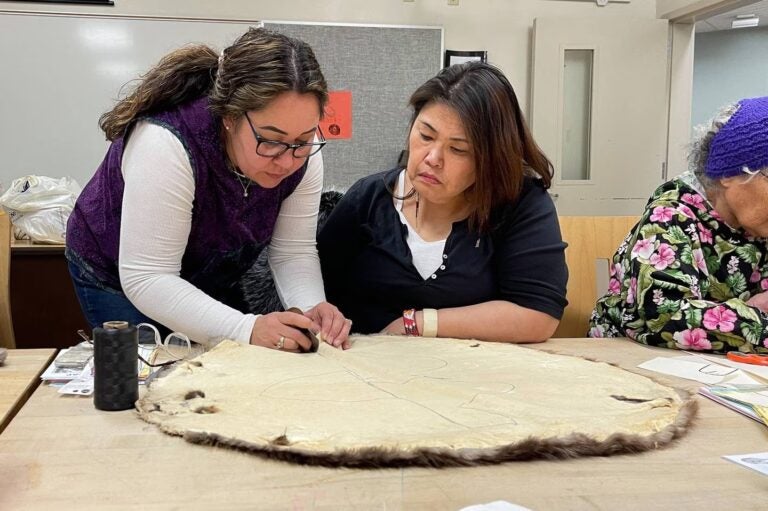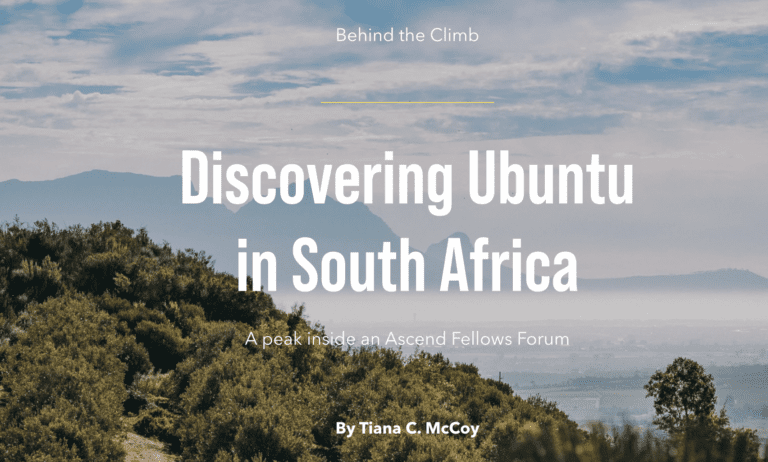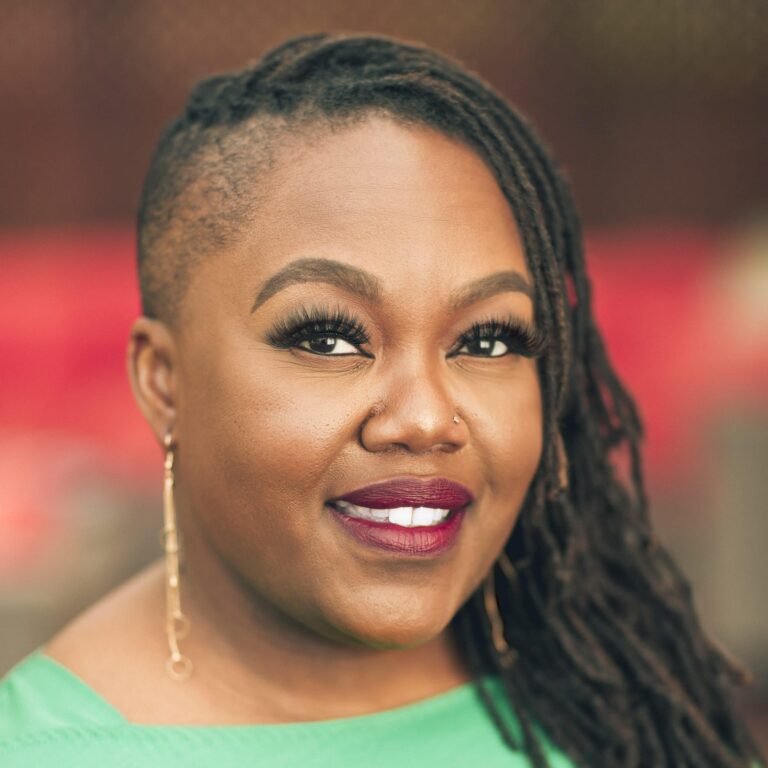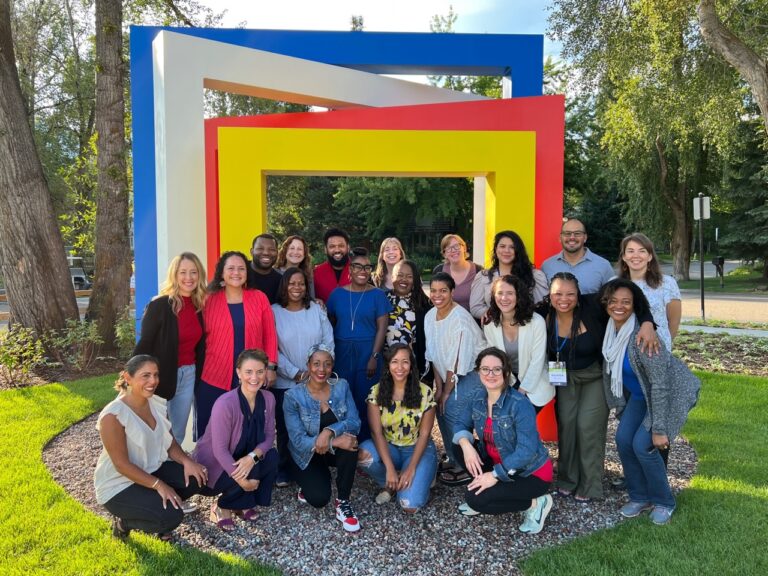Making Black History and Forging Black Futures
Image caption: Ascend Fellows at the Edmund Pettus Bridge in Selma, Alabama in 2018. Pictured left to right: Ann Kalass, Darius Tandon, Kirsten Lodal, Lori Severens, John Hudson III, Myla Calhoun, William Serrata, Dipesh Navsaria, Anne Mosle, Myra Jones-Taylor, Félix V. Matos Rodríguez, Laurie Miller Brotman, John Annis, Roxane White, Raquel Hatter, Sherece Y. West-Scantlebury, Betsy Delgado, Marjorie Sims.
Historian Carter G. Woodson recognized throughout his studies the dearth of African Americans in the nation’s curriculum. To help paint a fuller picture of America and bring to the fore those lost voices, Woodson founded the Association for the Study of Negro Life and History in 1915 and launched the Journal of African American History the following year. Seeking to bring even more stories of African Americans to light, Woodson founded the first Negro History Week in 1926. However, it wasn’t until fifty years later in 1976 that President Ford extended the observation to a full month – one honoring the contributions of Black Americans to present day.
This year, 47 years after America’s first Black History Month, we don’t want to just celebrate the prolific successes from the past; let’s honor the present-day leaders who are continuing a legacy of Black excellence. Because, as Victoria Safford wrote in the Small Work in the Great Work, “I am interested in what Seamus Heaney calls the meeting point of hope and history, where what has happened is met by what we make of it.”
As a program manager with Ascend at the Aspen Institute, I’ve had a front-row seat to witness almost 100 visionary Ascend Fellows who are at that exact meeting point of hope and history and reinventing a more just, equitable, and prosperous future for the next generation. I have been fortunate to work alongside these diverse, well-connected, well-prepared, and powerfully positioned leaders as they build political will, change systems, and drive a policy agenda to ensure the well-being of all children and families. To celebrate and illuminate how they are changing the course for families across the country, I’d like to introduce you to a handful of those leaders making Black history and forging Black futures across the US:
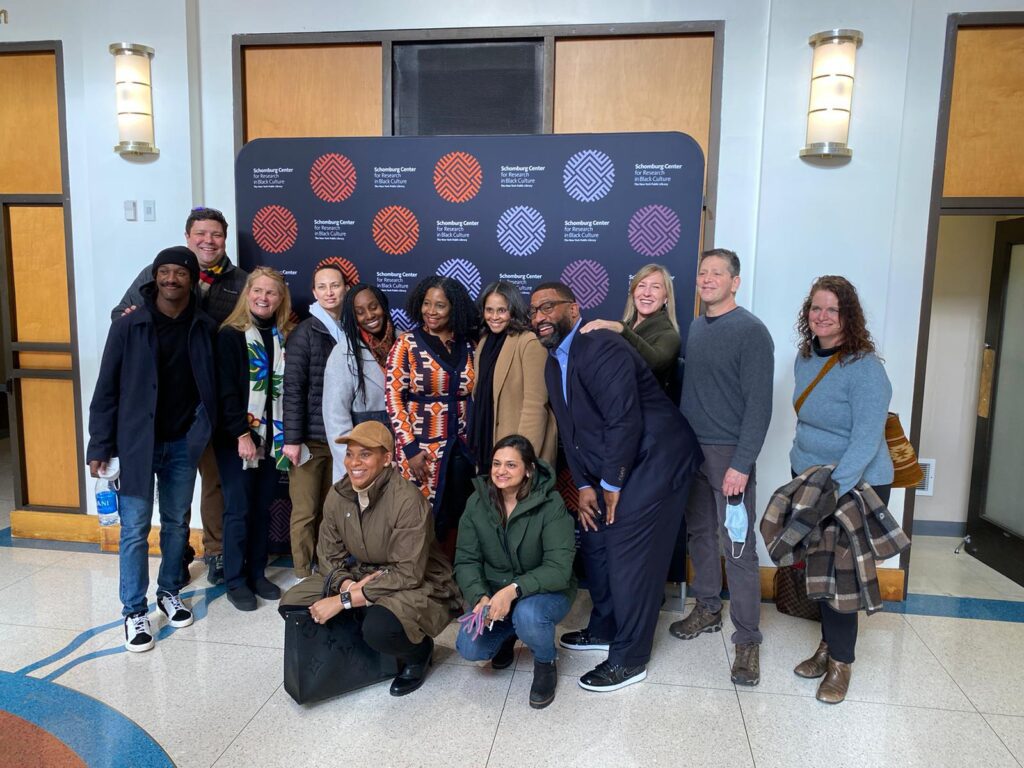


Melvin Carter
2015 Ascend Fellow
Mayor
City of St. Paul, Minnesota
Melvin Carter is the 46th, and first African-American mayor of the City of Saint Paul. Mayor Carter leads with an unapologetic equity agenda. Since taking office in 2018, his administration’s accomplishments include raising the city’s minimum wage to $15/hour; tripling free programs in recreation centers; eliminating late fines in public libraries; reestablishing an Affordable Housing Trust Fund; expanding immigrant & refugee support resources, and launching an Office of Financial Empowerment.
In 2019, Mayor Carter convened residents and local leaders to co-create a $3 million research-based public safety initiative centered around jobs & resources for youth, housing & mental health supports, and a public health approach to violence prevention. The public safety initiative includes implementing restorative justice circles as an alternative to criminal prosecution for non-violent offenders and embedding social workers with police officers to co-respond to persons in crisis.
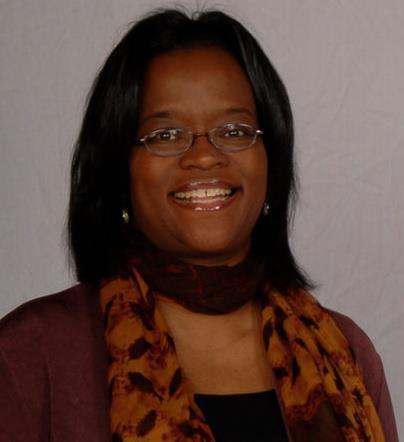
Deidre Johnson
2017 Ascend Fellow
CEO and Executive Director
The Center for African American Health
Deidre Johnson is CEO and executive director of the Center for African American Health. The Center for African American Health offers African American and Black communities in the Denver metropolitan area culturally responsive resources that support them in overcoming root causes of health problems to maximize their individual and family health.
The Center works toward health equity for the underserved African American community by offering culturally competent health education and outreach that empowers community members to overcome the root causes of health problems, maximize their own individual health, and access health and support services.
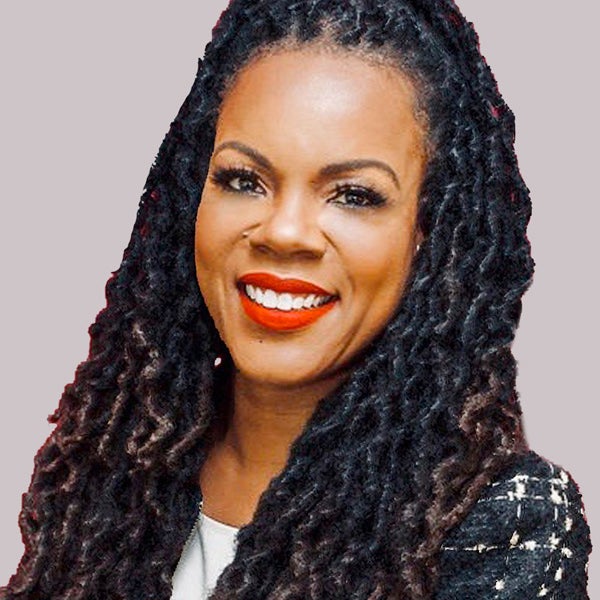
Dr. C. Nicole Mason
2012 Ascend Fellow
President & CEO
Institute for Women’s Policy Research (IWPR)
Recently named one of the World’s 50 Greatest Leaders by Fortune Magazine, Dr. C. Nicole Mason is the president and chief executive officer of the Institute for Women’s Policy Research (IWPR). Dr. Mason is the youngest person currently leading one of the major inside-the-Beltway think tanks in Washington, DC, and one of the few women of color to do so.
For the past two decades, Dr. Mason has spearheaded research on issues relating to economic security, poverty, women’s issues, and entitlement reforms; policy formation and political participation among women, communities of color; and racial equity. At the start of the pandemic, she coined the term she-cession to describe the disproportionate impact of employment and income losses on women. She is one of several policy experts and economists whose longtime advocacy for wage equity, paid leave, and more robust caregiving infrastructure has helped shape President Biden’s economic agenda, including the $1.9 trillion stimulus package that expanded childcare funding and tax credits.
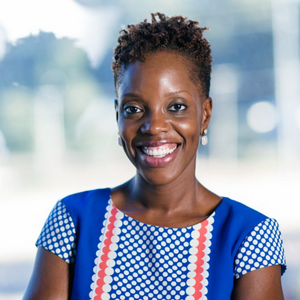
Dr. Aisha Nyandoro
2015 Ascend Fellow
Chief Executive Officer
Springboard to Opportunities
Aisha Nyandoro is the CEO of Springboard To Opportunities. Springboard provides direct support to residents of affordable housing. The organization’s service delivery model uses a “radically resident-driven” approach designed to improve quality of life and end generational cycles of poverty.
In the fall of 2018, Springboard To Opportunities announced the Magnolia Mother’s Trust, a new initiative that provides low-income, Black mothers in Jackson, Mississippi $1,000 cash on a monthly basis, no strings attached, for 12 consecutive months. While there have been several initiatives for a guaranteed income worldwide, this is the first that specifically targets families with extremely low-incomes headed by a Black female living in affordable housing in the United States.
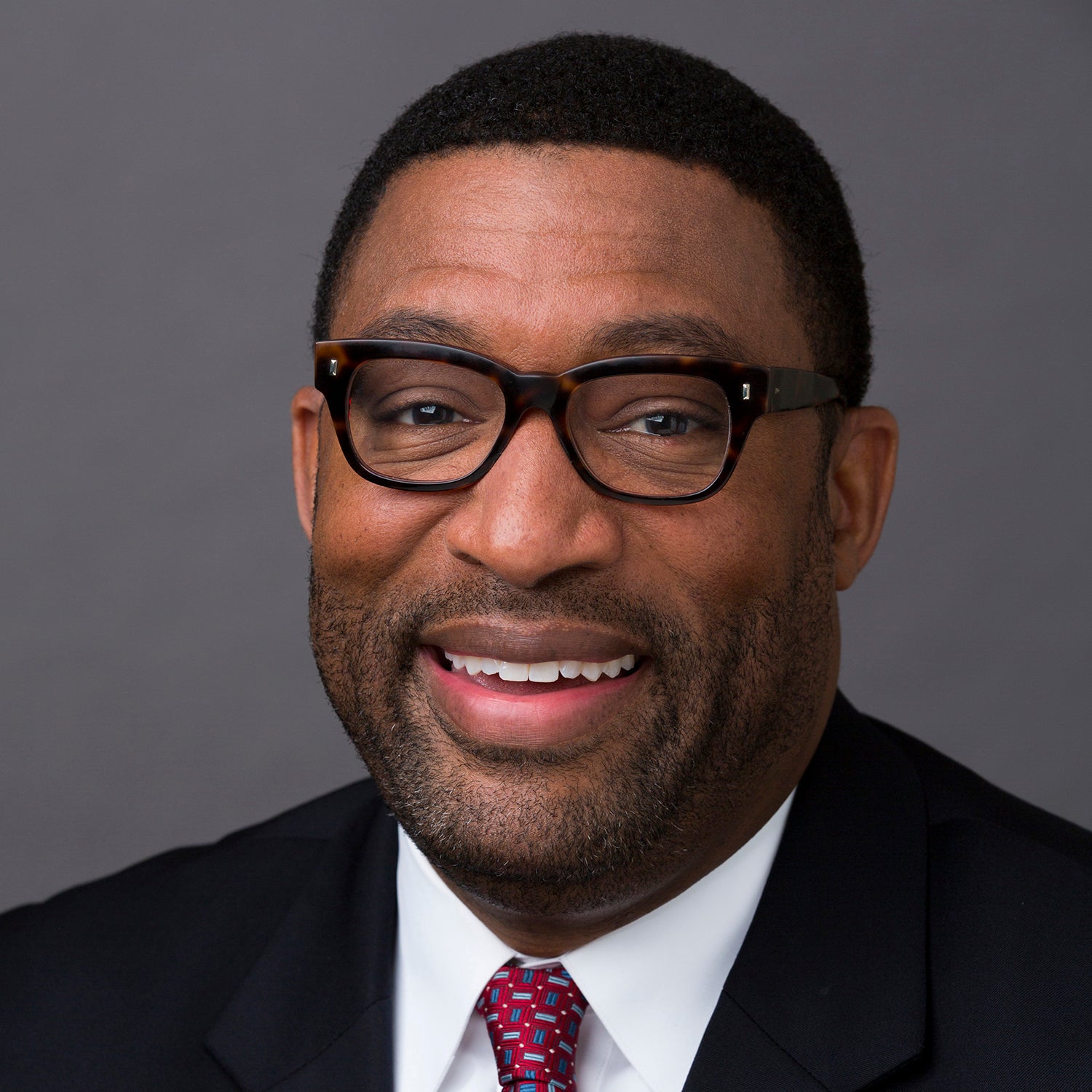
Greg Taylor
2021 Ascend Fellow
Executive Director
NBA Foundation
Greg Taylor is the first executive director of the NBA Foundation, leading the Foundation’s mission to drive economic empowerment for Black communities through employment and career advancement.
Greg’s responsibilities include strategic development, creation and implementation of programs and partnerships that advance the NBA Foundation’s efforts to increase access and support for high school, college-aged, job-ready and mid-career Black men and women. He also oversees administration of grants to national and local organizations that provide skills training, mentorship, coaching and pipeline development.
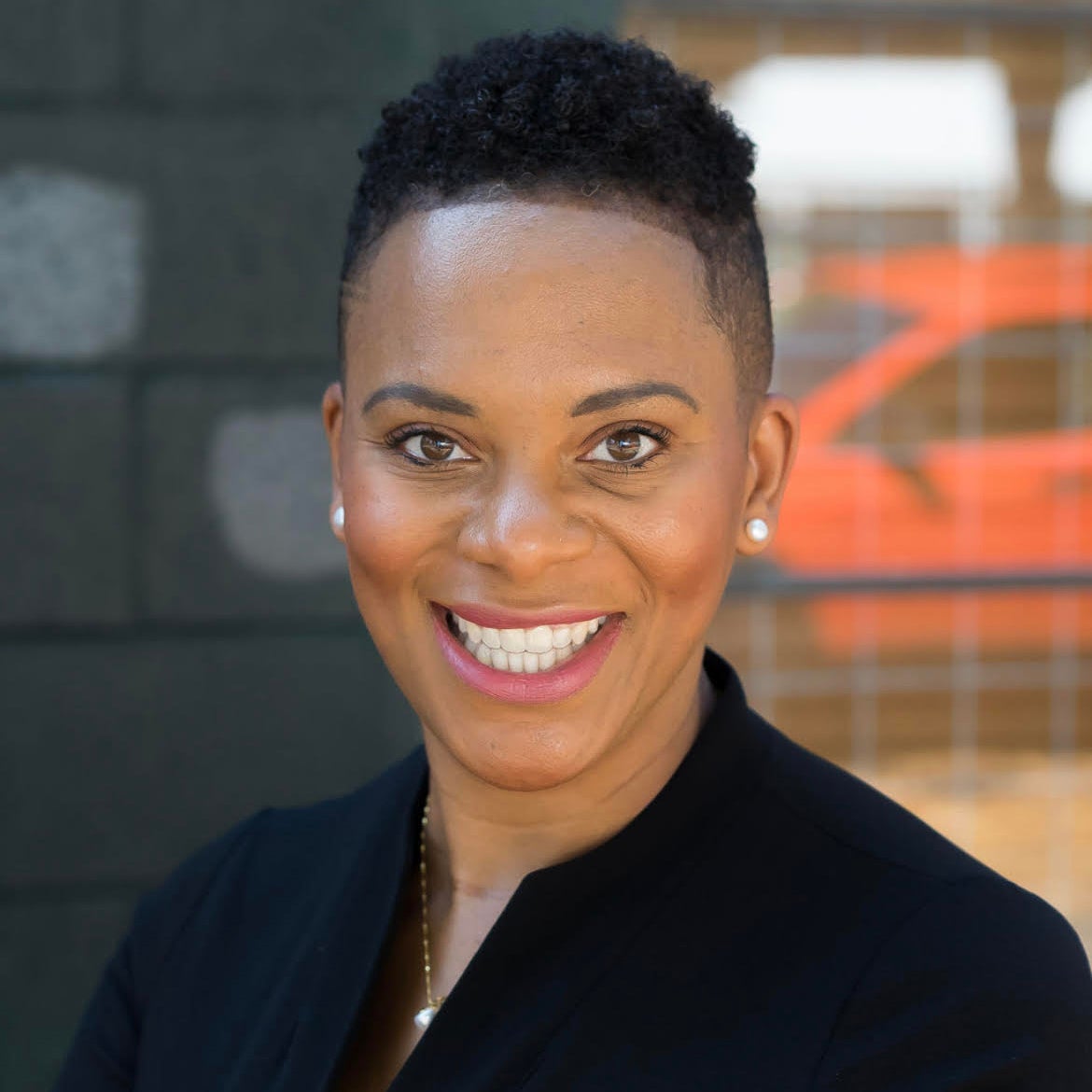
Dr. Daria Willis
2021 Ascend Fellow
President
Howard Community College
Dr. Daria Willis became the fifth president – and first African American to lead the college in its 51-year history – of Howard Community College in January.
Dr. Willis’ presidential accomplishments while at Everett Community College include adoption of the Guided Pathways framework to close achievement gaps and promote student success and achievement, collaborative leadership of a new advising model to assist students with course selection and degree completion, and completion of the Northwest Commission on Colleges and Universities mid-cycle review process for accreditation.
Under her leadership, Everett Community College received $2.5 million in grants from the US Department of Education to support TRIO and STEM programs for students of color and students with low-incomes and disabilities. A $50,000 Rise Prize grant and part of a $100,000 Washington Department of Labor grant went to the development and launch of a Weekend College for adult students and student parents.
Inspired by these leaders? Meet all 98 Aspen Institute Ascend Fellows!
Follow @AspenAscend on Twitter and Facebook for our #FellowsFriday series spotlighting an Ascend Fellow each week and how they’re leading with courage and conviction for children and families.
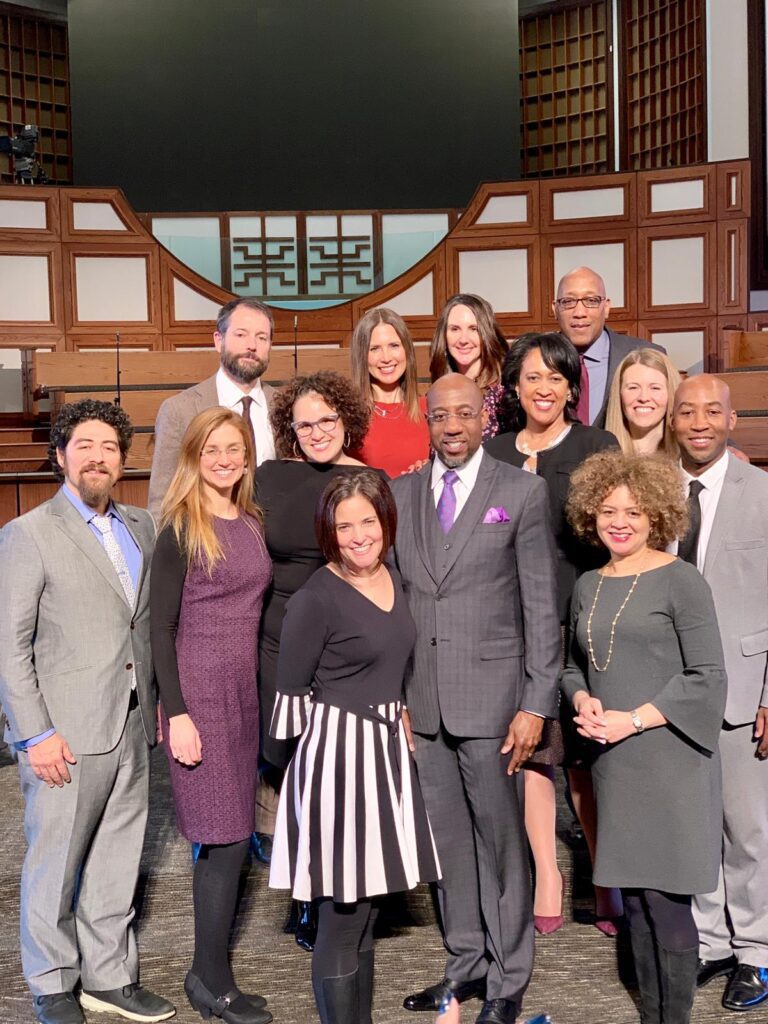
Related Posts

